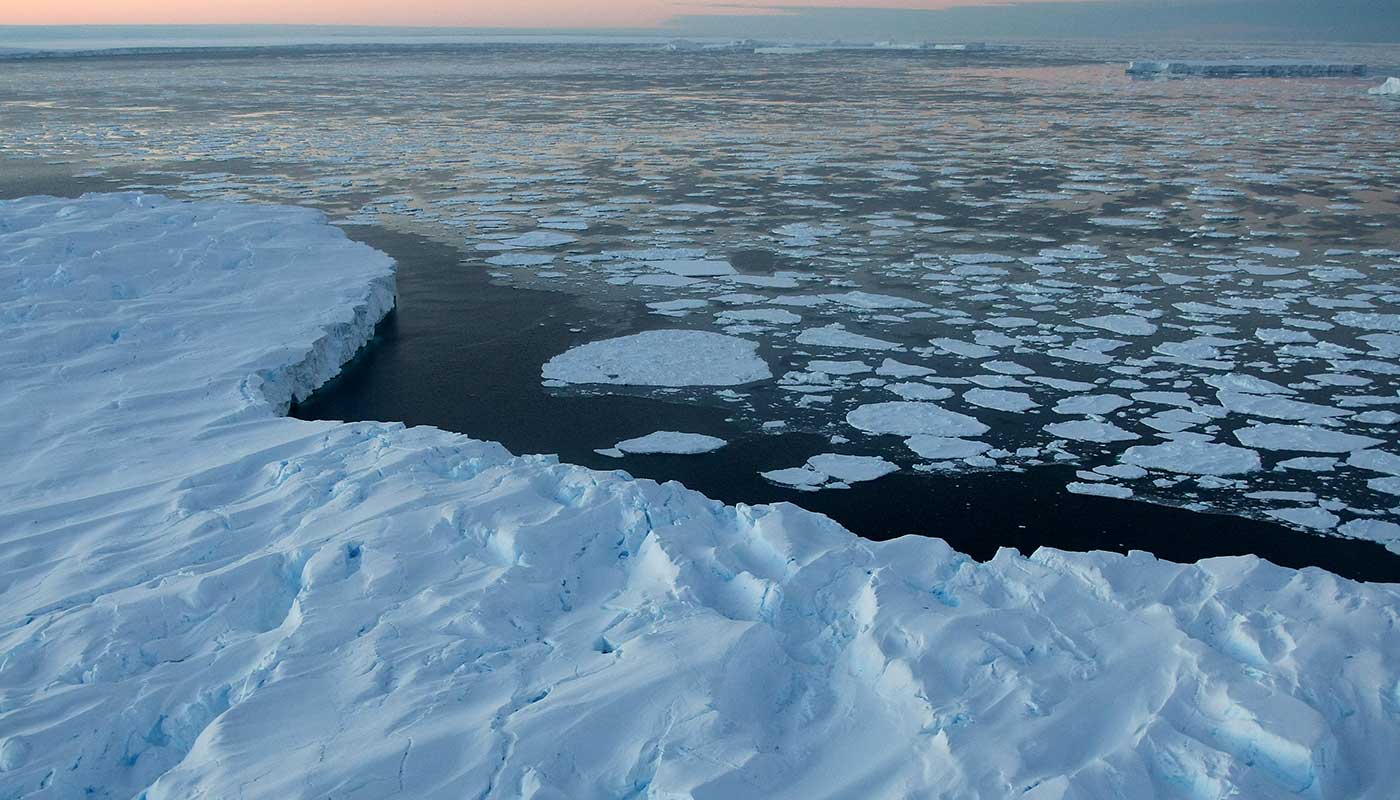‘Precipitous’ decline in Antarctic sea ice since 2014
Concern over increase in global heating as data shows dramatic development

A free daily email with the biggest news stories of the day – and the best features from TheWeek.com
You are now subscribed
Your newsletter sign-up was successful
There are fears of an increase in global heating after satellite data showed sea ice around Antarctica has suffered a “precipitous” fall since 2014 and fallen at a faster rate than seen in the Arctic.
The data show that Antarctica lost as much sea ice in four years as the Arctic lost in 34 years. The Guardian explains that “losing bright white sea ice means the sun’s heat is instead absorbed by dark ocean waters, leading to a vicious circle of heating”.
New Scientist says scientists are “puzzled as to why the region has flipped so abruptly”. Time adds that experts “don’t know if this is a natural blip that will go away or more long-term global warming that is finally catching up with the South Pole”.
The Week
Escape your echo chamber. Get the facts behind the news, plus analysis from multiple perspectives.

Sign up for The Week's Free Newsletters
From our morning news briefing to a weekly Good News Newsletter, get the best of The Week delivered directly to your inbox.
From our morning news briefing to a weekly Good News Newsletter, get the best of The Week delivered directly to your inbox.
Antarctic sea ice had been gradually increasing over the 40 years of measurements. Although it reached a record maximum in 2014, since then sea ice extent has nosedived, reaching a record low in 2017.
The impact of this could be profound for the planet. The losses of sea ice in the Arctic are already believed to have had a major impact on the global climate system. They have been widely linked to extreme weather at lower latitudes, such as recent heatwaves in Europe.
Claire Parkinson, at Nasa’s Goddard Space Flight Center in the US, says the decline at the Antarctic has been precipitous and a dramatic reversal.
“We don’t know if that decrease is going to continue,” she said. “But it raises the question of why [has it happened], and are we going to see some huge acceleration in the rate of decrease in the Arctic? Only the continued record will let us know.”
A free daily email with the biggest news stories of the day – and the best features from TheWeek.com
“The Arctic has become a poster child for global warming,” she said, adding: “All of us scientists were thinking eventually global warming is going to catch up in the Antarctic.”